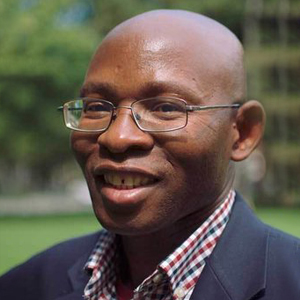Canada: Tackling Vaccine Hesitancy Among Indigenous Peoples
Medical racism against Indigenous peoples is a fact in the Canadian healthcare system. The recent case involving Ms Joyce Echaquan is a flashpoint of an ongoing systemic and historic problem. Examples throughout Canada’s history and into the present day show that Indigenous peoples are less likely to receive the comprehensive and compassionate medical care they are entitled to within Canada. As a direct result of this experience, many Indigenous peoples lack trust in the healthcare system, and they limit their engagement with the system as much as possible. This has caused many detrimental impacts on Indigenous peoples, and the ongoing COVID-19 pandemic has highlighted an area of key concern – vaccine hesitancy within Indigenous peoples.
As a result of social and physical determinants of health, Indigenous peoples are more vulnerable to COVID-19 than the general Canadian population. This vulnerability is compounded within remote communities where community transmission is high and comprehensive healthcare services are limited. In response to this, the Federal government has targeted Indigenous communities in the earliest phases of COVID-19 vaccination. While this is a positive step in combatting the threat of COVID-19 to these communities, success depends and will depend on high vaccination rates to achieve herd immunity. Due to the existing trust deficit among Indigenous peoples in relation to the healthcare system, many of them have expressed concerns with receiving vaccinations.
In the words of Inuit Tapiriit Kanatami leader, Natan Obed, “vaccine confidence is something that has to be earned.” The Canadian government has fallen short in the past to earn this confidence, as recognized by Indigenous Services Minister, Marc Miller. Miller has stressed that the government’s response to COVID-19 is an opportunity to demonstrate a commitment to culturally sensitive healthcare. We wholly agree with him.
The full picture of this culturally sensitive approach to healthcare has yet to emerge. Indigenous leadership organizations have partnered with the governments to advise the latter on their vaccine strategy and provide guidance on key areas for improvement. The solutions must be sought collectively from within Indigenous communities and in the spirit of partnership with governments and other concerned interests. In its little way, such efforts would begin to put into action Minister Miller’s remark as a step to leverage the moment and an attempt to begin the process of fixing historic trust deficit and to tailor solutions to the assessed needs and contexts of Indigenous experience in this pandemic at community and individual levels.
One aspect of vaccine hesitancy may be a lack of accountability through legal liability for the recipients of the COVID-19 vaccines. Indemnity agreements absolving pharmaceutical companies of liability are standard practice in vaccine rollouts. This lack of liability for many is a key source of hesitancy and ongoing trepidation. Canada is the only G7 country that does not have a nation-wide compensation scheme for those negatively affected by vaccines. The federal government has recently announced its intention to establish a pan-Canadian no-fault vaccine injury support program to address this. The program will provide financial support for people who experience a serious and permanent injury due to any vaccine approved by Health Canada, but it may take many months to come into operation. Furthermore, a recent review of Quebec’s existing vaccine compensation system shows no evidence that compensation decreases hesitancy. This continuing lack of trust in vaccines demonstrates that there is no single solution to generate vaccine confidence. But the government must not relent in genuinely engaging with the communities as a strategy to build confidence and meet expectations.
In light of vaccine hesitancy’s multifaceted roots, the Canadian government must take a comprehensive and holistic approach to promote vaccination amongst Indigenous peoples. Implementing accountability mechanisms in the form of compensation may be one strategy to increase trust, provided that the government creates a system equipped to provide timely and meaningful support to those negatively impacted by the COVID-19 vaccines. However, this cannot be the only strategy to address concerns about vaccination. The government must continue its partnerships with Indigenous advocacy organizations to understand the roots of medical mistrust and the methods best suited to address vaccine hesitancy in the community and among individuals. As well, governments must act to avoid the experiences such as late Joyce Echaquan had with the Quebec health care system through sensitization and retraining of health care providers and implementation of zero tolerance of racism in the halls of care.
Should the government fall short on this opportunity to demonstrate its ability to provide culturally sensitive healthcare and vaccine services, the cycle of mistrust will continue between the Canadian healthcare system and Indigenous peoples. The government must take an active role in avoiding this outcome and its potentially devastating effects, especially at a time when reconciliation is very much on the minds of governments and Indigenous peoples across Canada.







